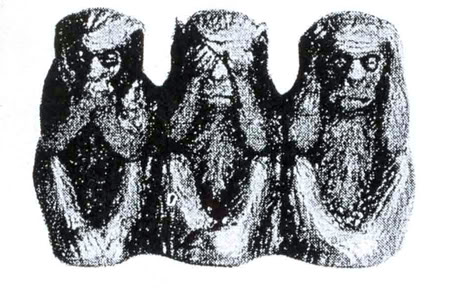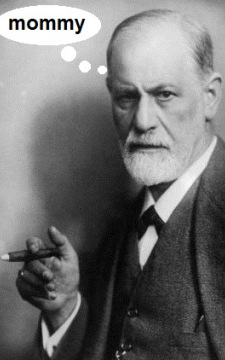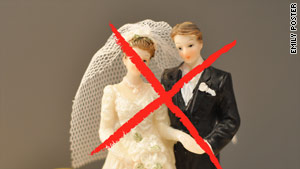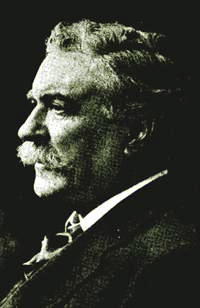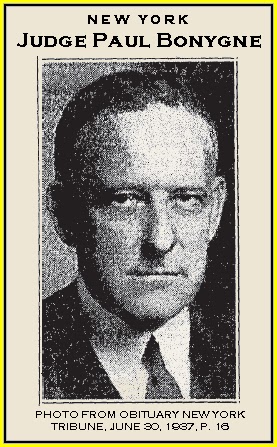“I love an opposition that has convictions” – Frederick the Great
The Battle of the Sexes has degenerated into a Dirty War, and we are, each of us, being drafted into it by forces who care not a whit for equality or fairness.
Propaganda, as a tool of control, is effective only insofar as the vision of the world that it presents concords with the perception of the world experienced day-to-day by its targets. The wider the gap between the perceived world and the propagandistic representation of the world, the less effective – and therefore less useful – the propaganda will ultimately be. We have reached a juncture at which women are increasingly rejecting feminism as irrelevant or inapplicable to their lives, because the world that feminist orthodoxy describes does not appear to be planet Earth. At the same time, we are approaching a zenith of feminist control over the actual inhabited world, which combines state repression with gender tribalism, both forces intensifying exponentially as they use each other as leverage to climb ever higher.
I am reminded of an ancient riddle, which asks, ‘how high can one climb up a mountain?’ The answer is ‘to the top,’ because once you reach the summit, the only possible way is down. Feminism has no obstacles left; total control is within its grasp, and by total, I do mean in the sense that it shall be totalitarian. The victim card has served as an entry pass through the back door of state and supranational institutions. Now empowered over men, feminists have re-established the principles of Valerie Solanas’ Scum Manifesto, declaring – in language clearly evocative of the Final Solution – that we shall soon witness The End of Men. The ‘sex war’ is not cooling down as women approach (or in some cases, surpass) equality with men – it is heating up. Feminists are not only publicly inciting male hatred and getting away with it, they are using their positions in government, in academia, in think tanks and in the media to make their violent fantasies a reality, advocating the renunciation of men’s basic human rights.
To take one recent example, the Secretary of State of the most powerful nation in the world recently announced that an international mobile prosecution unit shall be established specifically to target men around the world. To take another recent example, a leading feminist has suggested that certain legal principles designed to protect innocent citizens from persecution and unjust imprisonment, dating back to the signing of the Magna Carta, should be withdrawn from men. Nor is feminism a problem confined to the Western world. Men are subject to the arbitrary rule of women in India, facing severe penalties for inadvertently causing the slightest offense.
None of this squares with the ‘women-as-victim’ cliché, which has so usefully served feminists in getting to this point. Nevertheless, feminism is firmly entrenched and in control of the mechanisms which boast the monopoly on physical power, legitimate or otherwise. There is hardly any countervailing force which remains. The West has found its new Imperial Mission to replace Global Christendom: enforced worship of women. As any dissenting voice is immediately and violently stamped out, feminists are free to radicalize their anti-male agenda to the point of moral sickness and to unleash unto the world all manner of vindictive atrocities.
For you see, when propaganda has ceased to be an effective tool of control, one seeking control will simply find other means. Control of the state – the monopoly on physical violence – is the means which feminists have sought. But unlike propaganda, which manipulates the mind, state control only brutalizes the body. The power of the controllers always ultimately rests upon the resilience of the controlled, hence consent must still be manufactured. The Roman Empire did not last for five hundred years by the exercise of brute force, but by mass support; the Emperor was glorified as a mortal deity, and even the smallest townships in his realm voluntarily erected statues and altars in his honor. For too long, men have been worshiping at the altar of the female, and it is tempting to believe that this psychological submission will not yield even in the face of physical oppression or extermination – that men will march to their demise like sacrificial lambs, hoping to win women’s favor with their last servile actions. But proclamations regarding The End of Men may well turn out to be as empty as those which were made nearly twenty years earlier, concerning The End of History. The so-called Clash of Civilizations which followed led that author to refute his own position. We should be optimistic that a true Clash of the Sexes will soon have feminist-minded women eating crow.
As feminism grows ever more powerful, and begins to realize its radical ambitions, it will simultaneously exhaust its capacity for manufacturing consent. Those chivalric illusions which ensure the consent of men, and which feminism ultimately rests upon – ‘women-as-victim,’ ‘women-as-precious,’ ‘women-as-helpless,’ and so on – will become rather more difficult to maintain in time. The more force is advanced against men to bridle and inhibit their lives, the more discontent shall be nurtured among them. The misandry bubble is due to burst, and with every example of overreach, which sees yet more good men cast into the role of criminal and subjected to humiliating and vicious punishments, another crack appears in the wall, another step we take closer to the day that the whole hateful edifice collapses under its own weight – and, crucially, under ours.
Our task, then, is twofold: first, to prepare the ground, in order to hasten the collapse of feminism.
Second (and complementary to the first): to construct the ideological weapons to help prevent a feminist resurgence following its collapse.
Both of these goals require, not force, but some propagandizing of our own. Things being the way they are, this does not require us to distort the truth. On the contrary, we shall, for the most part, be exposing those truths which others have distorted; revealing the facts to a wider audience than has yet received them, diligently and unapologetically. As one notable activist in the field recently put it, he does not need to attack feminists – all he needs to do is quote them. Simply exposing feminist hatred to the disinfecting sunlight of the world might well be enough to turn the tide – which is why enormous energies are expended on misdirecting, discrediting, neutralizing and obscuring the arguments and advocates of the opposition.
One key strategy for the achievement of our task was announced at an April 2010 conference, in the form of Male Studies, a new discipline already facing hostility from an academic world that has long been a bastion of radical feminism. That this sore thumb, this thorn in the side of scholarly uniformity should provoke such outrage as it has done should not be surprising. Here is a selection of topics which Male Studies is set to cover:
Socioeconomic factors leading to males’ over-involvement in the criminal justice system, underemployment and limited opportunities as fathers, resulting from changes in child custody law (economics, forensics, law, public policy);
Misandric representations of boys and mature males in the media and advertising (media studies including cinema, television and internet, and advertising);
Accounts of the experience of being male (history, literature, autobiography);
Pressing issues related to the emotional well-being of boys and older males, most notably depression and suicide (clinical psychology, medicine and psychiatry, social work).
Friedrich Nietzsche, writing in the late 19th century, warned that if one gazes into the abyss for long enough, then one shall find the abyss gazing back into them. It must be deeply troubling for feminists, to wake up one morning and find other people deconstructing them, having made it their mission in life to expose and correct feminist wrongdoing.
This would seem to be the reason for the abusive response, from the feminist sector, to the idea of men discussing issues of sex and sexism without the supervision of women. It matters not what feminists think of Male Studies, because feminists are not the discipline’s target audience; its success is not dependent upon their approval, a fact they will no doubt have trouble reconciling themselves to. Regardless, even if they launched a concerted campaign to stop men from discussing their experiences through the fora of academia, they are incapable of preventing this from happening elsewhere. The true sticking point for would-be dictators today is that we live in an Information Age. It is rather difficult to control the flow of information when our very epoch is defined by it. So, let’s have these discussions right here, right now – as long as people can use the internet to congregate and speak their minds, nothing can stop us. Let’s have these discussions in a million other places too, out in the real world – because if men had never spoken up about their experiences, as men, then we would not be looking forward to the commencement of Male Studies in the near future.
There are already a great number of websites devoted to Men’s Rights issues; indeed, these seem to have proliferated over the last few years, sprouting up all over the pasture like so many delicious mushrooms! For most of these weblogs, their content needs no greater unifying theme than opposition to feminism. Given the growing and active network of people concerned about the status of men today, it has become possible to push the envelope a little further. This weblog aims to encourage the intellectual crystallization of what we are calling the Men’s Rights Movement, by taking a narrow lens across a broad range of topics. This weblog is dedicated to the elucidation of Gynocentrism Theory.
What is Gynocentrism Theory? To put it simply, it is a system which explains social relations between the sexes. It supersedes Patriarchy Theory, the cornerstone of all feminist thought. Now memetic, Patriarchy Theory has proved a remarkable tool in denying men their rights, including their most basic human rights to dignity and bodily integrity, on the pretense that all men are oppressors (or at least, allied with oppressive men from whom they receive benefits) and that all women are victims of male power. Gynocentrism Theory is the articulation of many years of effort by various thinkers in the Men’s Rights sphere to describe a vision of the world which more accurately reflects the experiences of men – and many women, too. In contrast to the simplistic, black-and-white tribalism of Patriarchy Theory, Gynocentrism Theory does not equate male fulfillment with the holding of tyrannical power over women. Gynocentrism Theory does not accept that men act as a power bloc. On the contrary, Gynocentrism Theory exposes the divergence between demographics and interests; fundamentally, that while a small number of men may be the ones holding social and political power, this by no means implies that they do so for the benefit of all men; and that in fact, more usually, they do so for the benefit of most women and to the detriment of most men. Gynocentrism Theory advocates that power be understood as multi-faceted, and that policy has historically been a matter of appealing to, and protecting, women.
The above, no doubt, shall make heads spin among those who assume that power at all levels can be identified according to the shape of the genitals of those who get to make important decisions – regardless of what they actually decide.
Any more shall be beyond the scope of this introductory lecture. And so, we shall continue this train of thought next week. Lectures will be held on Saturdays, and students from around the world are invited to attend – or catch up in their own time if they prefer. Discussions shall be held immediately afterwards. Unlike most feminist weblogs, whose authors take after their mentor Mary Daly in systematically denying men a voice, all shall be welcome to speak here, although expulsions shall be warranted in the case that obscene material or personal information is posted. I prefer that feminists be fisked than filtered out, but the fate of truly persistent trolls shall be delivered at my discretion.
I bid you all a reflective day, and I’ll be seeing you again.
Sooner than you think.
Adam Kostakis
Further Reading:
The Futurist. The Misandry Bubble
Fidelbogen. For the Benefit of Newcomers: A Review of Some Basic Things
GYNOCENTRISM THEORY LECTURE SERIES:
1. Staring Out From the Abyss
2. The Same Old Gynocentric Story
3. Refuting the Appeal to Dictionary
4. Pig Latin
5. Anatomy of a Victim Ideology
6. Old Wine, New Bottles
7. The Personal, as Contrasted to the Political
8. Chasing Rainbows
9. False Consciousness & Kafka-Trapping
10. The Eventual Outcome of Feminism, Part I
11. The Eventual Outcome of Feminism, Part II
12. How to Break a Dialectic


